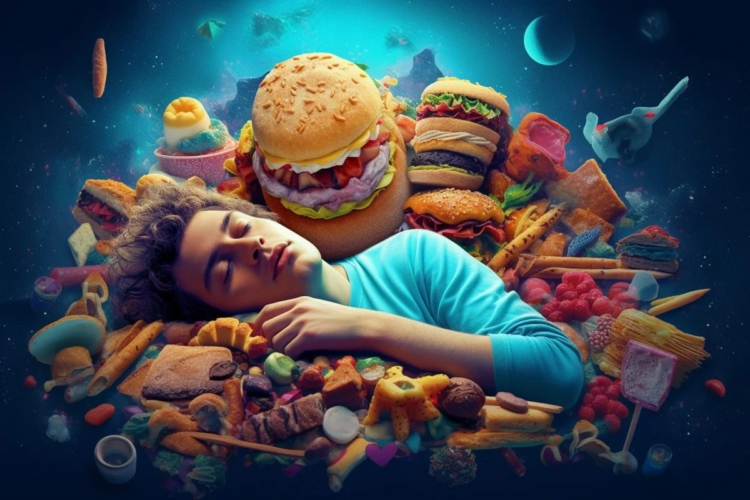According to scientists, junk food may also be detrimental to our sleep
Could junk food be detrimental to sleep in addition to its established effects on diabetes, the skin, and cardiovascular health? This is in line with a recent study by Swedish researchers who discovered that consuming unhealthy meals may interfere with the quality of deep slow-wave sleep, which is thought to be the most restorative.
This is not the first time that researchers have looked at the relationship between what we eat and variations in how much sleep we get. For instance, it has been shown that a diet heavy in sugar might affect how well a person sleeps. However, little study has examined how a specific diet specifically impacts this crucial period of rest and recovery. And that’s what Uppsala University academics wanted to look into. bad sleep and a bad diet both raise the risk of a number of illnesses. We thought it would be fascinating to look into whether any of the health consequences of various diets may entail modifications to our sleep since what we eat has such a significant impact on our wellbeing, says Jonathan Cedernaes, MD, an associate professor of medical cell biology at Uppsala University.
influencing the restorative effects of sleep
Participants were randomly assigned to a healthy diet before being given a less healthy diet. Both diets included the same number of calories, but one was more rich in processed foods, sugar, and saturated fats, or “junk food,” while the other was more focused on eating wholesome foods. Each diet was followed for a week, and each person’s sleep, exercise, and food patterns were tracked separately. At the conclusion of each diet, individuals were observed in a sleep lab to evaluate their brain activity during three different phases: a typical night, a wakeful state, and finally a “catch-up” mode for missing sleep.
This study, which was published in the journal Obesity, showed that junk food had an impact on the quality of deep sleep, which had a bearing on its restorative properties. Participants slept the same number of hours regardless of diet, and neither did the duration of sleep or the time spent in each stage of sleep. We paid particular attention to slow-wave activity, a metric that may indicate how restorative deep sleep is. Intriguingly, we found that individuals who had eaten junk food had lower levels of slow-wave activity during deep sleep than those who had eaten a better diet, according to Jonathan Cedernaes in a press release.
Some restrictions
The scientists were unable to assess, however, how junk food might affect sleep over the long run. It should be mentioned that just 15 persons were involved in this research, making up a relatively small sample since they had to be monitored for many days in a sleep lab. The researchers note that more study is still required to learn more, if not in greater detail, about the impact of poor diets on other sleep-related activities. Functional experiments, such as those to determine if memory function may be impacted, would also be intriguing. Sleep controls this to a considerable degree. Also intriguing would be seeing how long-lasting the impacts could endure, according to Jonathan Cedernaes.
Last but not least, the researchers also want to look at the component suspected of causing sleep disturbance, whether it be sugar, saturated fat, processed meals, or all of them together. They will deepen their investigation of this topic.







